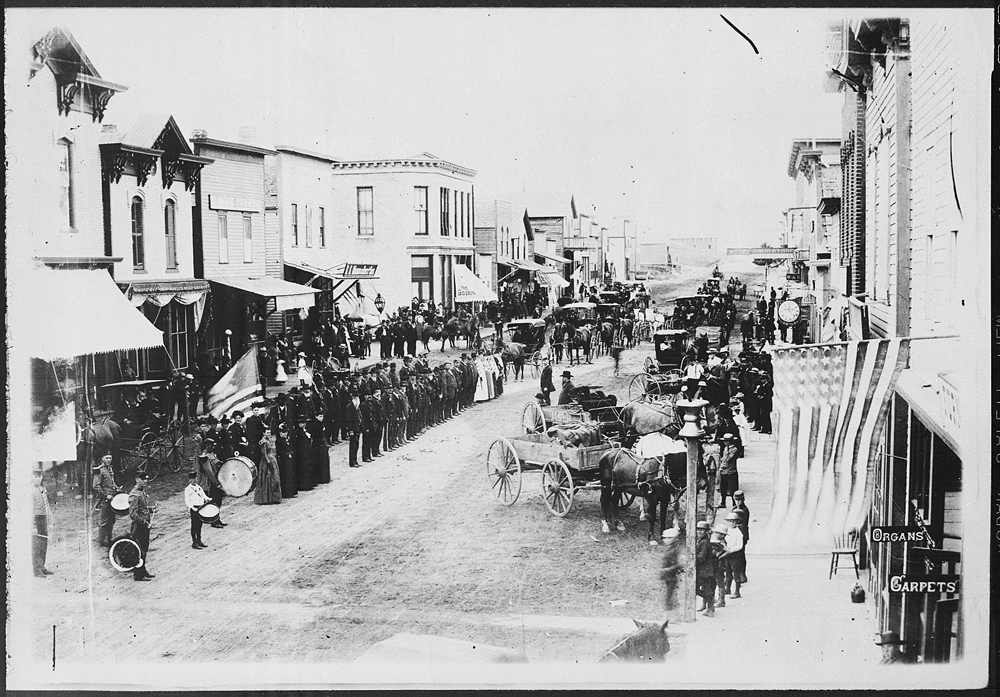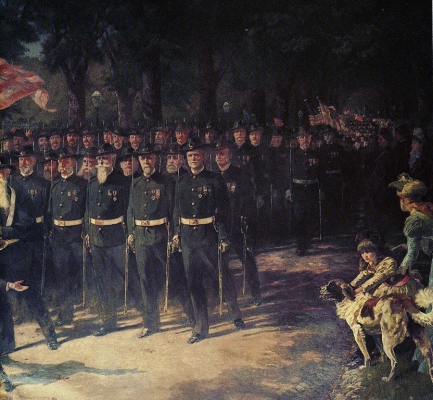The Minnov8 Gang Podcast will be back next week on May 31st. We are having time with our families this Memorial Day weekend. In the meantime, enjoy this post that has some intriguing, and surprising, factoids about the origin of the holiday.
![]()

Civil War Veterans in Ortonville, Minnesota, on the Fourth of July, 1880 – also called
“Decoration Day” prior to the Uniform Monday Holiday Act almost a century later.
We all know what Memorial Day is all about, right? “That is obvious,” you might say. But if you are like us then it is likely you haven’t spent much time learning about the origins of this holiday (and your education on it was probably like ours: one chapter in your American History course in high school). Also, unless you have loved ones who have served and fought in the United States military—and died in that service to our country—Memorial Day is often one when most of us play and don’t think too much about what the day means.
We must admit to being surprised about all the competing origin stories about how Memorial Day began.
What is Memorial Day?
This Wikipedia article about Memorial Day starts out with a straightforward overview of what the day is all about:
“Memorial Day is a US federal holiday wherein the men and women who died while serving in the United States Armed Forces are remembered. The holiday, which is celebrated every year on the final Monday of May, was formerly known as Decoration Day and originated after the American Civil War to commemorate the Union and Confederate soldiers who died in the Civil War.
By the 20th century, Memorial Day had been extended to honor all Americans who have died while in the military service. It typically marks the start of the summer vacation season, while Labor Day marks its end.”
But how this remembrance holiday began is not straightforward.
How Did Today’s Memorial Day Celebration Begin?
This is what was most surprising about that article and other items we read: That there are several competing claims of ‘ownership’ of the beginning of what is now today’s Memorial Day:
- In 1863, the cemetery dedication at Gettysburg, Pennsylvania, was a ceremony of commemoration at the graves of dead soldiers. Local historians in Boalsburg, Pennsylvania, claim that ladies there decorated soldiers’ graves on July 4, 1864. As a result, Boalsburg promotes itself as the birthplace of Memorial Day.
- A claim that African Americans invented Memorial Day in Charleston, South Carolina:
The first widely publicized observance of a Memorial Day-type observance after the Civil War was in Charleston, South Carolina, on May 1, 1865. During the war, Union soldiers who were prisoners of war had been held at the Charleston Race Course; at least 257 Union prisoners died there and were hastily buried in unmarked graves. Together with teachers and missionaries, black residents of Charleston organized a May Day ceremony in 1865, which was covered by the New York Tribune and other national papers.
- Another claim was made in 1906 that the first Civil War soldier’s grave ever decorated was in Warrenton, Virginia, on June 3, 1861, implying the first Memorial Day occurred there.
- On May 26, 1966, President Johnson signed a presidential proclamation naming Waterloo, New York, as the birthplace of Memorial Day.
The kicker? The article goes on to discuss several other views on what led up to the formalization of a holiday to remember soldiers who died in wars. While the competing claims and variety of perspectives is a bit of head-scratcher—aspects we had no idea was the case as we’d always thought the remembrance day was straightforward and its path to today clear—it really doesn’t matter.

To us the origins (or possible origins) of a national holiday are intellectually interesting, but it is the meaning of the day we celebrate now that matters: Honoring the sacrifices of those who have given their lives in war. So while we are all enjoying the holiday with family and friends, let’s pause for a moment and reflect on the meaning of the day and on those who have fallen.
